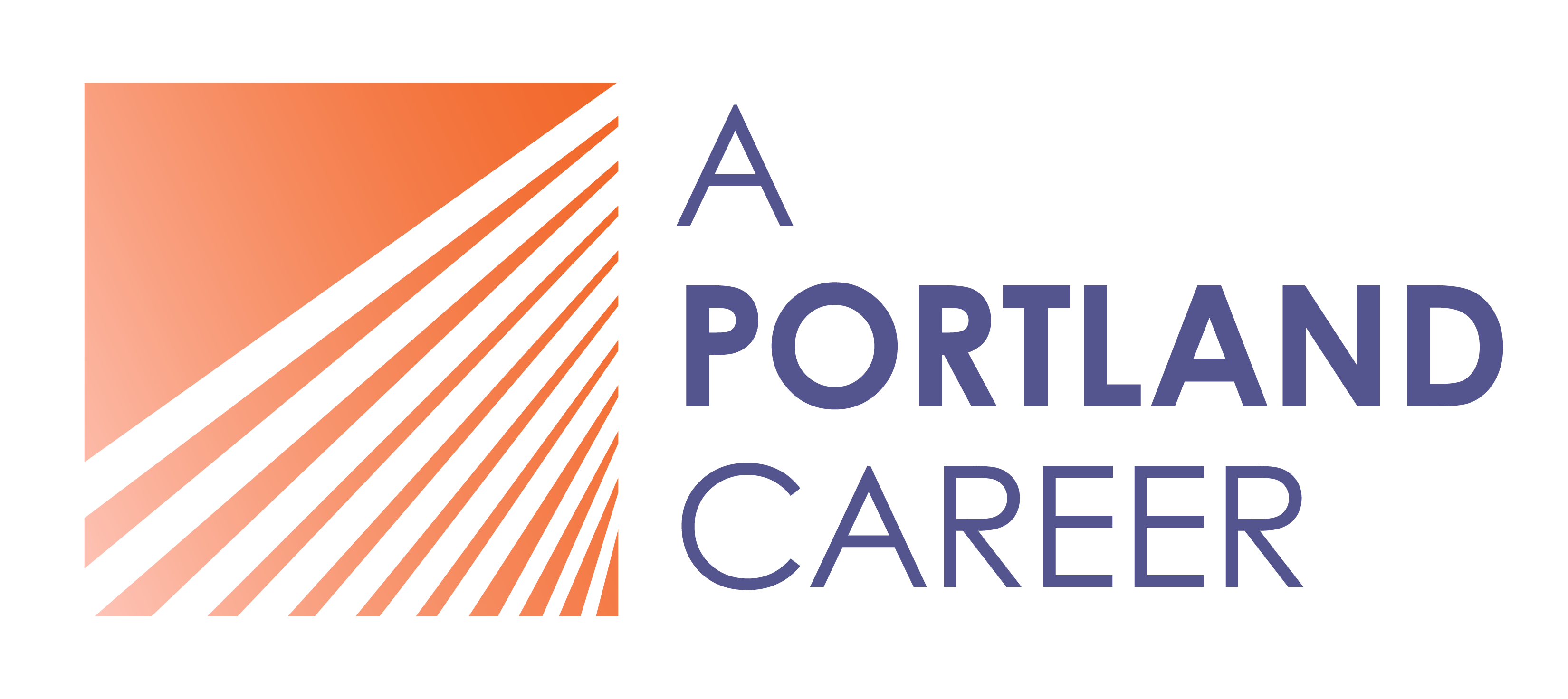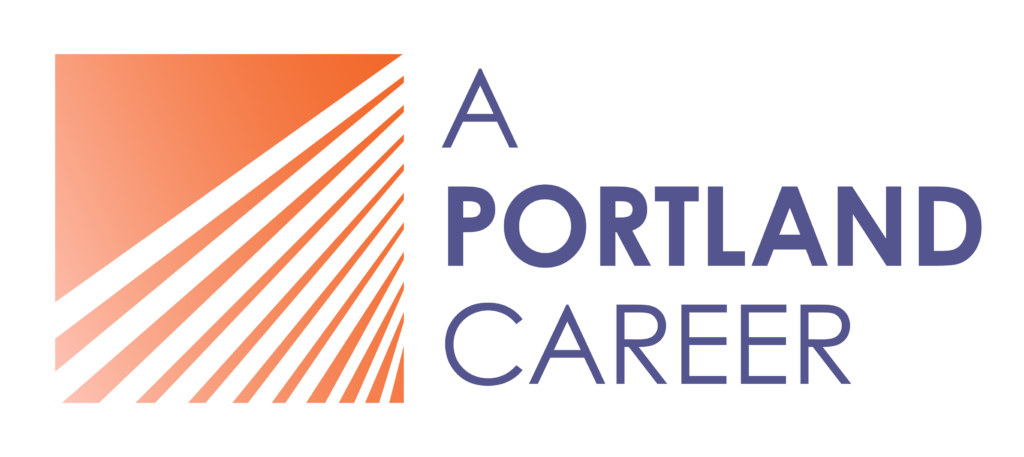Here are the practical and emotional factors that can impact your job search, with room for serendipity and the unexpected!
Job vs. career: even the most basic of human endeavors can lead us to search for a deeper sense of meaning. The difference might not be so binary after all.
What’s the Difference between A Job, A Career, and A Calling?
By A Portland Career, and edited by Dan Hahn, M.S., and Suzie Sherman
Stuck in a job you hate? We can help you find your higher groove

“Work is about a search for daily meaning as well as daily bread, for recognition as well as cash, for astonishment rather than torpor; in short, for a sort of life rather than a Monday through Friday sort of dying…Most of us, like the assembly-line worker, have jobs that are too small for our spirit. Jobs are not big enough for people.” —Studs Terkel
In Studs Terkel’s brilliant book Working: People Talk About What They Do All Day and How They Feel About What They Do—a collection of more than 100 interviews with workers of varied backgrounds, from working class laborers to corporate executives—a similar message emerges. People crave a sense of purpose.
Revealing the vulnerabilities, challenges, and motivations that intersect with our professional identities, the most compelling subjects in the book find pride and satisfaction in the commitment to a cause or deep interest, or the determination to master a craft or skill. Despite the socioeconomic diversity in their situations, Terkel’s subjects relay a common desire to find meaning and make the best possible use of their intellect and creativity.
What transforms a job into a career and a career into a calling? Do all of us need a calling or a career? Or can we find our calling in our off-time, waking at 5 a.m. to write novels in our attics under a swinging light bulb; spending weekends playing bass in a Celtic-punk-ska band; or collaborating with a friend to develop an app that provides daily mindfulness meditations? Can we merely like our job and not consider it a calling or a career? Can we like our careers and not consider it a calling?
Home → Helpful Articles → Career Growth → What’s the Difference between A Job, A Career, and A Calling?
Here are more great posts to help you along your career path, whether you’re looking to meet new challenges, or thrive where you are:
- How to Prepare for a Fulfilling Career: Identifying and Overcoming Career Barriers
- The Job Seeker’s Checklist: Your Career Development Toolkit
- How to Get the Education You Need to Further Your Career
- The Tech and Social Media Skills You Need as a Job Seeker or Career Explorer
- How Strategic Volunteering Can Help You Find a Job You Love
If you feel stuck, get in touch with us, and we’ll tailor a career growth plan to help you become the professional you want to be.
On This Page

What is the difference between a job, a career, and a calling?
The concept of work is, perhaps, one of the most universally understood conventions of the human condition. Most of us, barring some spectacular amount of inherited wealth, need to work at jobs, as a necessity, in order to make a living for ourselves and our families.
As a job seeker, you might be looking for a short-term job to pay the bills, or a long-term career, in which you can invest in your professional development over time. It might fit in with your long-term goals to find a career if you are driven to accomplishment, greater levels of responsibility, and the opportunity to earn an income while expressing your creative and intellectual gifts. At a higher spiritual or existential level, many of us crave the kind of purpose we might find in a “calling” or “vocation.”
In this post, we focus more on the practical aspects of differentiating between a job and a career, and how we might, or might not, want to address that deeper call to meaning through work.
“Hobby, Job, Career, Vocation”
Author Elizabeth Gilbert has spoken—delightfully and charismatically—on discerning the key differences between what she defines as “hobby, job, career, and vocation.” This video of her talk at Acumen Academy is a high recommendation for inspiration, and for thinking about the differences between these different types of work we do.
If your career and your calling mesh, that’s a rare and beautiful thing, indeed. But, for the vast majority of people in the world, it’s a pretty unrealistic prospect to get paid, let alone to make a living, at your calling. That doesn’t mean that you shouldn’t work on your passion projects; it just means you might have to balance them with a paying job of some kind, even if both work and calling are part-time pursuits. Or, perhaps you’ll have to juggle different jobs to meet expenses and still make it to band practice!
Reasons you might need to find a job and not a career
Sometimes, we just need a way to pay for basic needs—to put food on the table and pay the rent, right now—and we can’t pursue something that sounds loftier, like a career path or a passion project. If your financial situation is critical, or you don’t have much time for exploration because of family or personal needs, you’re probably looking for a short-term solution to make ends meet.
This is generally considered the time to get a “job,” as opposed to a “career.” You might end up falling into a job you love, or a job that you are quite good at, that could eventually lead to a career, with more time and training. But your motivation is more basic than that, at least for now.
In defense of “just a job”
Let’s dispel a false dichotomy between what we call “jobs,” and what we call “careers,” though. Even at the most basic level, a job where you simply punch the clock, do your time, and get a paycheck, can still be an experience that you treat with intention and respect. Your current job might not meet your goals for more fulfillment, more money, or more enjoyment, but it can still be a place where:
- You put your best self forward; in other words, you don’t just “phone it in.”
- You develop helpful, kind, and trusting relationships and collaborations with co-workers, clients, and supervisors.
- You have a chance to challenge yourself and learn new skills, for the sake of learning, or on your way to a better fit for your career and your life.
- You clock your time, and then get to “leave work at work,” and go live your life and feel free and self-possessed in your off time. “Just a job” can often allow for more work-life balance than a more demanding “career.”
If you think callings are only for white collar professionals, think again. Amy Wrzesniewski, PhD, then of NYU, and now Yale, studied hospital janitorial staff, and found that some viewed their work as drudgery, while others found ways to make it meaningful. Cleaners with a calling believed they were helping patients heal (PDF). They worked efficiently, anticipated clinicians’ needs, and took interest in brightening the patients’ days, whether by rearranging furniture or decorating the walls.
Researchers have seen the same phenomenon among secretaries, engineers, nurses, kitchen workers, and haircutters. The key to contentment, their studies suggest, is not getting the perfect job, but using your creativity and resourcefulness to make your work more meaningful through conscientiousness, collaboration, positivity, and a commitment to excellence. In other words, perhaps the difference between what we think of as a “job” and what we think of as a “career” is in our attitude toward work. It’s certainly not just the realm of people with higher education or class status.

Are you ready for a career?
If you have the determination to engage in a focused career search, or you’ve gotten to a point in your life where your intention is to find more meaningful and rewarding work, it is helpful to assess where you are now, what resources you have for your search, and to define your career goals, both in the short-term and long-term. If you need help planning out the steps of your career search, get in touch with us. We can guide you through a successful search, customized to exactly where you are on your career journey.
Where are you starting out?
The first things to consider in a serious search for a career path, rather than looking for a purely subsistence job are:
- What are my resources now? Am I able to pay my rent and my bills while I’m doing a deeper exploration of my career path? Consider the 6 Factors that Impact Your Career Change Time Frame to assess how ready you are to invest time and money into a career exploration. If, realistically, you are bound to your full-time hustle, it’s a lot harder to incorporate more ideal career goals into your plan.
- What can I afford? Can I take an entry-level job, a part-time position, or an unpaid internship to work toward my longer-term goals?
- Do I meet the requirements? Do I have the formal education, training, and work experience required, or do I need to invest more time in getting the training necessary for me to launch this career?
A career includes your long-term goals
One of the key differences that defines a career from a job is that it satisfies your long-term goals. A true career trajectory generally includes one or more of the following potential goals:
- Purpose or meaning: a career is work you believe in, care about, or have a deep interest in. A particular career path motivates you to develop the specific skills you need to excel in this industry, career field, or set of roles you take on.
- Greater financial reward: long-term financial stability, a more lucrative salary, stock options, or a retirement plan are often the bedrock of a career, rather than simply subsistence work, paycheck-to-paycheck.
- Work experience and career development: building on your experiences and working toward professional goals can lead to greater job satisfaction.
Be open to the twists and turns: a person’s life tends to go in unexpected directions. You can still keep your long-term career development in mind, even if you sometimes have to work jobs that don’t feel “on brand” for your professional goals. Every job opportunity presents chances for learning, relationship-building, and cultivating your professional life.
Final thoughts on jobs vs careers
Work is one of the most fundamental of human pursuits. We need to meet our basic needs in order to live and provide for ourselves and our families. But most people also want to experience deeper meaning and enjoyment in what they do with their lives every day.
Sometimes “just a job” can serve the function of meeting our needs, as well as giving us the ability to really show up, do good work, and make meaningful relationships, even if it’s not leading to a greater career path. Assess your own current financial means and life circumstances to evaluate whether investing in a longer-term career journey will serve your goals, and then make a plan to explore your career options.
If you’re ready to get serious about your career exploration, we’re here to help!
Key takeaways
- Even though jobs are one of our most basic necessities in life, people tend to seek a greater sense of purpose than “just a job” can give them.
- Traditionally, “jobs vs careers” can be described as subsistence level work with few benefits vs a longer-term career plan that might pay off in more job satisfaction, better compensation, and a greater sense of meaning.
- It’s important also to recognize that there can be an attitude of purpose in more mundane work, if we choose to treat it with care, and are determined to learn and grow from our experiences.
- In that spirit, it’s possible to find hobbies, interests, and creative pursuits outside the realm of work to add meaning and texture to our lives.
- If you are career driven, and endeavor to explore a career in line with your greater long-term goals, it’s important to assess your resources of time and money to invest in this process, and do some soul-searching to determine your path.
Related articles you might be interested in:
How to Get the Education You Need to Further Your Career
Education and certification costs are absurd! Here are 5 great ways to finance your education so you can move forward in your career.
How Strategic Volunteering Can Help You Find a Job You Love
Kickstart your career exploration with some strategic volunteering in fields that align with your values and interests!
Building Faith, Nature, and Mindfulness into Your Job Search
Faith, nature, and mindfulness can benefit your job search: discern your calling, celebrate your gifts, and accept the uncertainties in the process.





